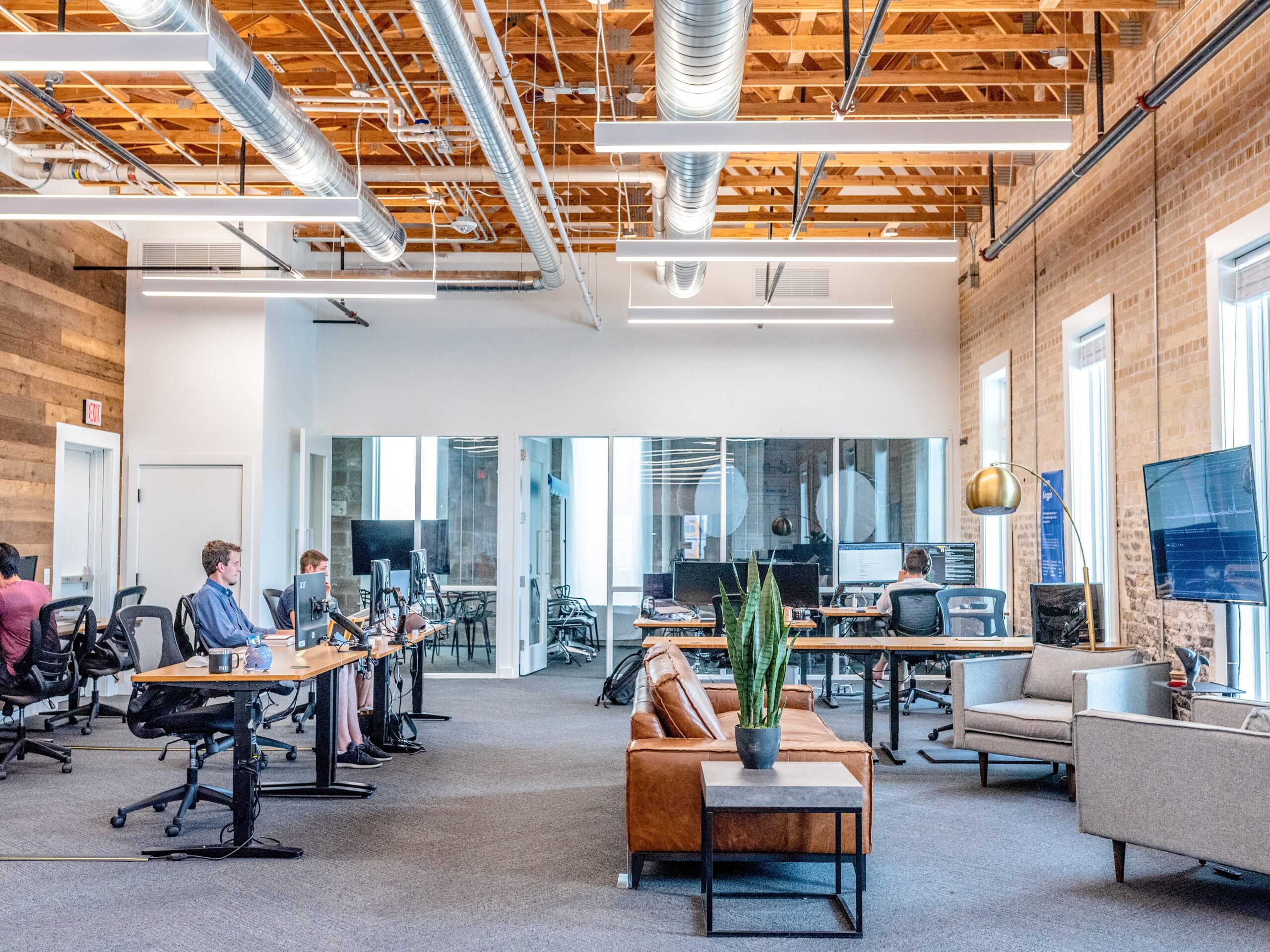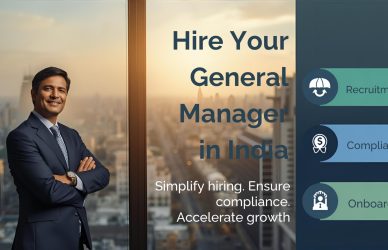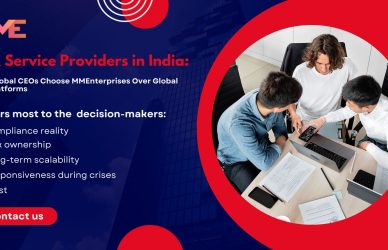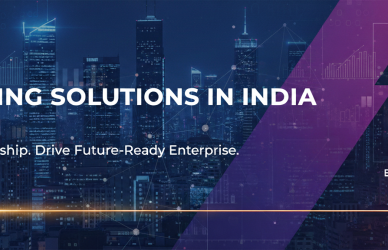Introduction: Why 2025 is a Defining Year for EOR Services
As we enter 2025, the business world is rapidly adapting to new ways of working. Companies are no longer limited by borders, and the need to scale globally—fast and efficiently—has become a strategic imperative. In this context, Employer of Record (EOR) services are emerging as a cornerstone for international workforce management.
A Year Marked by Workforce Globalization and Tech Disruption
The rise of borderless talent and decentralized teams is transforming how businesses operate. Companies are tapping into global labor markets to access top-tier talent while minimizing the cost and complexity of setting up legal entities abroad. EOR services are pivotal in this evolution, enabling organizations to legally employ talent in foreign countries without establishing a physical presence.
Simultaneously, the acceleration of digital transformation—through automation, AI in HR, and global payroll platforms—is aligning perfectly with the EOR model. Businesses in 2025 are adopting EORs not just for compliance, but as part of a broader digital-first HR strategy.
Key Drivers Pushing EOR to the Forefront
Several macro and micro trends are pushing EOR services into the spotlight this year:
Rise of Remote and Gig Workforces: Companies are embracing hybrid and remote-first models, which demand flexible, location-independent hiring structures. EORs simplify cross-border hiring for freelance and full-time talent alike.
Complex Global Compliance Needs: Navigating local labor laws, tax structures, and employment regulations is becoming increasingly challenging. EOR providers act as compliance experts, reducing the risk of legal missteps.
Speed and Agility in Market Entry: Whether it’s a startup testing a new region or a multinational optimizing costs, EORs accelerate entry into foreign markets without the red tape of entity setup.
Local Talent Shortages: As home markets experience skill gaps, businesses are expanding their talent search globally. EOR services make it possible to onboard skilled professionals in new regions quickly and compliantly.
A Strategic Solution for Diverse Business Models
From scaling startups looking to test new markets, to large corporations restructuring their workforce and decentralizing operations, EOR services offer unmatched flexibility. In 2025, EORs are no longer viewed as a tactical tool—they are now a strategic enabler for sustainable global growth and operational agility.

Understanding EOR Services: A Quick Refresher
As global expansion becomes more viable and strategic in 2025, understanding the fundamentals of Employer of Record (EOR) services is essential for companies seeking agile workforce solutions. At its core, an EOR acts as the legal employer of a worker while the client company oversees their day-to-day responsibilities.
What Does an EOR Do?
An Employer of Record assumes the legal, administrative, and compliance burdens of employing a worker in a country where the client business may not have a legal presence. The EOR is responsible for a wide range of essential HR functions, including:
- Drafting and managing employment contracts in accordance with local labor laws
- Processing payroll and handling tax withholdings as per regional regulations
- Administering statutory and optional employee benefits, such as health insurance or paid leave
- Ensuring full compliance with local employment and labor laws to avoid legal risk
This structure allows businesses to hire globally without setting up a local legal entity, saving time, cost, and legal complexity.
Who Needs EOR Services?
The EOR model fits a variety of business cases and has become especially useful in today’s globally distributed work environments. Companies that benefit the most include:
- Startups or SMEs entering new markets but lacking the infrastructure to establish a subsidiary
- Enterprises that want to test international markets before committing to a full-scale launch
- Organizations with remote-first policies, aiming to hire the best talent regardless of geography
- Businesses looking to stay compliant with diverse, ever-evolving labor regulations across borders
EOR in 2025: Evolved and Digitally Driven
In 2025, EOR services are no longer limited to basic payroll and compliance. The modern EOR has evolved into a tech-enabled, end-to-end global employment partner. Key enhancements now include:
- Remote workforce management through cloud-based dashboards
- Digital onboarding platforms for faster, smoother employee experiences
- AI-powered compliance monitoring to proactively identify risks and adapt to changing laws
- Integrated benefits administration tailored to local market standards
This evolution makes EORs not only relevant but vital in today’s fast-changing, tech-driven HR landscape—especially for companies looking to scale across borders with minimal friction.

Key Drivers Behind the Growth of EOR in 2025
As 2025 unfolds, the global business environment is being reshaped by disruptive trends in workforce management, technology adoption, and cross-border commerce. At the center of this evolution is the rise of Employer of Record (EOR) services, offering a streamlined solution for companies navigating the complexities of international hiring. Below are the key drivers fueling the rapid growth of EOR services this year.
a. Rise of Remote and Hybrid Work
The post-pandemic work culture has permanently shifted toward remote and hybrid models. Organizations are no longer bound by geographic limitations when sourcing talent. From developers in Eastern Europe to designers in Southeast Asia, companies are hiring the best candidates regardless of location.
However, global hiring introduces a maze of labor regulations, tax implications, and contract requirements. EOR services eliminate these barriers by taking on the legal responsibility for employing individuals in different countries. This makes it possible for businesses to build high-performing global teams without worrying about legal exposure or compliance breaches.
b. Speed to Market
In today’s hyper-competitive economy, speed matters. Whether it’s a startup looking to test new markets or an established firm entering a high-growth region, the ability to scale fast is critical. Unfortunately, setting up a local entity can be time-consuming and costly, often taking several months and involving extensive paperwork.
With an EOR, companies can begin operations in new markets within days, not months. This agility gives businesses a crucial edge in capturing early market share and responding quickly to global opportunities.
c. Compliance Complexity
Employment regulations vary widely from one country to another and are constantly evolving. From GDPR compliance in Europe to intricate labor laws in Asia-Pacific, maintaining compliance across multiple jurisdictions is a daunting task for in-house HR teams.
EOR providers bring in-depth expertise in local labor law, tax codes, and employee rights. They ensure compliance is embedded into the hiring and management process, reducing the risk of legal penalties, audits, or reputational damage. This makes EORs indispensable for global businesses in 2025.
d. Cost Optimization
Establishing and maintaining overseas subsidiaries involves substantial expenses—legal fees, office leases, local hires for compliance, and more. For businesses aiming to scale efficiently, these costs can be a major roadblock.
EORs provide a cost-effective alternative by eliminating the need for legal infrastructure in every country of operation. They also reduce administrative burden, enabling HR and finance teams to focus on strategic initiatives rather than operational details.
e. Talent Scarcity
In sectors like technology, healthcare, engineering, and even education, talent shortages are becoming more pronounced in domestic markets. The pressure to find specialized skills is pushing companies to think globally.
EOR services empower businesses to tap into global talent pools while remaining fully compliant with local employment laws. This approach not only widens the recruitment funnel but also enhances workforce diversity and innovation.

Technologies Transforming EOR Services in 2025
In 2025, Employer of Record (EOR) services are no longer just about legal employment and compliance. They are rapidly evolving into tech-driven global employment solutions that offer speed, transparency, and strategic insight. EOR providers are now leveraging a wide array of digital tools to streamline onboarding, enhance payroll accuracy, simplify compliance, and deliver data-backed decisions to clients across the globe.
a. AI-Powered Onboarding
Gone are the days of lengthy and manual onboarding processes. Today, leading EOR platforms use AI-driven onboarding systems to automate key steps in the hiring journey. From conducting instant background checks to generating smart employment contracts customized by country and role, automation has significantly reduced time-to-hire.
Digital document verification and e-signatures ensure smooth remote hiring experiences. With AI handling document parsing, identity validation, and even pre-boarding communication, onboarding timelines are shortened, and employee satisfaction is boosted right from day one.
b. Global Payroll Automation
Handling multi-country payroll is one of the most complex tasks in global employment. In 2025, payroll automation tools integrated into EOR services have made this process faster, more secure, and error-free.
Advanced platforms offer real-time salary processing, support for multi-currency transactions, and blockchain-based payroll ledgers that ensure transparency and immutability of financial records. Automated payroll also handles deductions, benefits, and statutory contributions specific to each jurisdiction, dramatically reducing manual effort and financial risk.
c. Compliance Dashboards
Regulatory compliance is a constantly moving target in global employment. To stay ahead, EOR providers are deploying AI-powered compliance dashboards that continuously scan, monitor, and interpret policy changes across multiple countries.
These smart systems send real-time alerts about law amendments, visa changes, tax code updates, or benefit regulations, allowing businesses to take corrective action before a risk materializes. With visual risk maps and audit trails, companies gain unprecedented visibility into their global compliance posture.
d. Cloud-Based HRIS Integration
Modern EOR solutions are designed to work seamlessly with existing Human Resource Information Systems (HRIS) like Workday, BambooHR, SAP, and ADP. Through cloud-based integration, data flows automatically between systems, reducing duplication, manual entries, and human errors.
This enables HR teams to maintain a single source of truth across all regions and enhances reporting accuracy. It also streamlines tasks like time tracking, employee records management, and benefits administration across distributed teams.
e. Data Analytics
EOR providers in 2025 are leveraging predictive analytics and business intelligence tools to offer clients actionable insights. These tools analyze trends in hiring costs, employee turnover, benefits utilization, and even region-specific compliance risks.
By using these insights, businesses can make data-informed strategic decisions—such as selecting the most cost-effective regions to hire, predicting the risk of attrition, or evaluating the financial impact of regulatory changes before entering a new market.

Benefits of EOR for Global Businesses in 2025
In 2025, Employer of Record (EOR) services are proving to be far more than a legal workaround—they are powerful strategic tools that support agile growth, international expansion, and operational efficiency. As the demands of global business evolve, EOR providers deliver unmatched value to companies of all sizes, across all industries.
Speed and Flexibility
The ability to hire talent in over 150 countries within days is no longer a luxury—it’s a competitive necessity. EORs eliminate the long wait times and regulatory hurdles involved in establishing a local entity. Whether it’s launching a new market or responding to an urgent project, EORs offer instant access to international talent with minimal administrative friction.
Legal Assurance
With constantly changing labor laws, tax codes, and employment regulations around the world, maintaining compliance is a massive challenge. EORs assume full legal responsibility for employment, ensuring businesses avoid misclassification, fines, or lawsuits. From proper worker classification to managing local tax filings and contracts, EORs bring peace of mind in high-risk jurisdictions.
Scalability on Demand
Business needs fluctuate—projects ramp up or slow down, funding cycles shift, and market demands evolve. EORs offer the agility to scale your workforce up or down without the long-term commitments of traditional hiring models. This is especially valuable for seasonal hiring, pilot projects, or temporary international expansions.
Boost in Employee Satisfaction
EORs help deliver locally compliant, competitive benefits packages that attract and retain top-tier talent. From healthcare and pensions to paid leave and statutory protections, employees feel secure and valued. When workers know they are legally protected and fairly compensated, morale and productivity rise—regardless of where they’re located.
Refocused Core Operations
Managing HR, payroll, tax, and legal compliance across multiple countries can consume enormous internal resources. EORs lift that burden by handling all backend employment logistics, allowing internal teams to focus on strategic growth, product development, and customer experience.
Whether you’re a VC-backed startup testing international waters or a Fortune 500 company managing complex global teams, EORs act as the operational backbone of a borderless workforce. In 2025, they are no longer optional—they are essential partners in global business success.

Challenges and Limitations of EOR in 2025
While Employer of Record (EOR) services have gained significant momentum in 2025 as a global employment solution, they are not without limitations. For businesses planning long-term international strategies, understanding the potential drawbacks is just as important as recognizing the benefits. These challenges highlight areas where careful planning and provider selection are essential.
a. Limited Customization
One of the key challenges of working with an EOR is the restricted flexibility in tailoring employment contracts and benefits. EORs must comply strictly with local labor laws, which often leave little room for negotiation or personalization. For companies looking to offer unique perks or design non-standard employment structures, this rigidity can be a barrier to aligning talent policies with company culture or global strategy.
b. Cost vs. Entity Setup
While EORs are cost-effective in the short term—especially for market entry or temporary projects—long-term reliance can become expensive. The recurring service fees of an EOR may surpass the cost of setting up a local legal entity after a certain scale is reached. Businesses need to weigh their growth trajectory and expansion plans to determine whether EOR remains a viable solution or a transitional one.
c. Brand Disconnect
Since the employee is legally hired by the EOR and not the company they’re working for, a sense of disconnect from the employer’s brand can develop. This may affect employee engagement, loyalty, and cultural integration—especially in mission-driven or fast-scaling startups where a strong brand identity is vital to the company’s DNA.
d. Jurisdictional Risks
Despite the increasing acceptance of EOR models worldwide, legal ambiguity still exists in some jurisdictions. Certain countries have not formally recognized EOR structures, or their regulations may not align with international EOR practices. This creates potential risks for non-compliance or future legal disputes, especially in emerging markets or regions with strict employment codes.
e. Service Quality Variance
With the EOR market expanding rapidly, service quality is inconsistent across providers. Some lack the experience, infrastructure, or local expertise necessary to ensure smooth onboarding, timely payroll, or regulatory compliance. Choosing the wrong provider can lead to employee dissatisfaction, delayed payments, or legal complications. Diligent vetting and ongoing performance monitoring are critical.
Understanding these challenges allows businesses to make informed decisions, optimize their global hiring strategies, and build sustainable international operations while using EOR services.

Comparing EOR with Other Workforce Models
As businesses scale internationally in 2025, choosing the right employment structure is crucial. Employer of Record (EOR) services are popular—but not the only route. Companies must evaluate EORs against alternative workforce models like Professional Employer Organizations (PEOs), freelancers, and entity establishment to determine what best fits their needs in terms of speed, cost, control, and compliance.
Employer of Record (EOR)
Pros:
- Fast market entry
- Full compliance assurance
- No need for a legal entity
- Minimal administrative overhead
Cons:
- Higher long-term costs compared to establishing an entity
- Limited customization in employment terms
EORs are ideal for companies looking to expand internationally with speed and minimal commitment. They offer a plug-and-play model for hiring across borders while ensuring local compliance.
Professional Employer Organization (PEO)
Pros:
- Offers a co-employment model
- Great for domestic HR outsourcing
- Reduces HR administration load
Cons:
- Does not support global hiring without a local entity
- Shared control over employment decisions
PEOs work best for U.S.-based companies seeking to offload HR functions domestically. However, they cannot legally hire internationally unless the company has a local entity in the foreign country.
Freelancer Model
Pros:
- Cost-effective and quick to hire
- Flexible and project-specific talent access
Cons:
- High risk of worker misclassification
- No legal protections or benefits for the worker
- Limited control over deliverables and retention
Hiring freelancers can be a short-term solution but presents major compliance risks when used for long-term or full-time roles. This model lacks employment structure and is unsuited for team building or strategic scaling.
Entity Establishment
Pros:
- Full control over employment, operations, and branding
- Suitable for long-term market presence
Cons:
- Expensive and time-consuming setup
- Requires deep knowledge of local regulations and tax systems
Setting up a foreign subsidiary makes sense for companies committed to a region, but the upfront legal, financial, and administrative burdens are significant.
In 2025, EORs have emerged as the most flexible and risk-averse model for global workforce expansion. For businesses that need speed, scalability, and compliance without long-term infrastructure investment, EORs stand out as a smart strategic choice.

Top Industries Leveraging EOR Services in 2025
As globalization accelerates and remote work becomes the norm, several industries are adopting Employer of Record (EOR) services to manage international teams, simplify compliance, and accelerate global expansion. In 2025, the following sectors are leading the way:
a. Technology and SaaS
Tech companies and SaaS startups are at the forefront of EOR adoption. With product development and support teams scattered across the globe, these firms rely on EORs to hire engineers, developers, and designers in international markets. By using an EOR, they can secure intellectual property (IP), ensure payroll compliance, and focus on product delivery without setting up multiple legal entities.
b. Healthcare and Life Sciences
In highly regulated sectors like pharmaceuticals, biotech, and medical devices, EOR services provide a safe way to hire across borders. Research labs and clinical trial organizations use EORs to employ specialists and field staff in countries with strict healthcare regulations, while ensuring compliance with local medical and employment laws.
c. E-commerce and Retail
To grow in new markets, e-commerce platforms and retail brands need local marketers, customer support reps, and logistics coordinators. EORs help these companies enter new regions quickly by handling hiring, tax compliance, and localized employment practices—all without the need for physical stores or legal branches.
d. Manufacturing and Supply Chain
Manufacturers and logistics firms leverage EORs to manage distributed teams across production hubs and supply chain nodes. These services ensure local labor compliance and payroll accuracy, especially in countries with varying labor laws and union requirements.
e. Finance and Consulting
Financial services, auditing, and consulting firms depend on specialized, geographically diverse talent. EORs enable them to legally employ professionals in foreign jurisdictions while navigating complex financial regulations and tax codes.

Selecting the Right EOR Partner in 2025
In 2025, the success of your global expansion heavily depends on choosing the right Employer of Record (EOR) partner. With a growing number of providers in the market, selecting one that aligns with your business goals, operational needs, and long-term vision is essential. Here are the key criteria to evaluate when choosing an EOR partner:
Global Coverage
Your EOR provider must have a strong presence in your target markets. Whether you’re expanding into Asia, Europe, or Latin America, ensure the EOR has legal infrastructure and operational capabilities in those regions to support compliant hiring.
Technology Stack
Modern EORs leverage cutting-edge technology. Look for platforms that offer API integrations with your existing HRIS or payroll systems, provide real-time dashboards, and support digital onboarding for a seamless experience across global teams.
Compliance Expertise
The best EORs act as compliance guardians, offering in-depth knowledge of local labor laws, taxation, benefits, and employee classification. Ask for case studies or client references to assess their track record in managing complex legal environments.
Scalability
Your workforce may expand quickly. Choose an EOR that can scale with your growth, whether you’re hiring five or five hundred employees. Flexibility in service delivery and geographic expansion is a must.
Transparent Pricing
EOR pricing models vary. Ensure the provider offers clear, itemized pricing without hidden fees. A transparent fee structure helps forecast HR costs and justify long-term investment.
In 2025, top-tier EOR providers also offer dedicated compliance advisors, 24/7 customer support, and localized onboarding processes, making the global employee experience smoother and more engaging from day one.

Future Outlook: What’s Next for EOR Services Beyond 2025?
As businesses become more digital, global, and decentralized, EOR services are evolving to meet the demands of a rapidly changing workforce. Beyond 2025, EORs are poised to play an even more strategic role in global talent acquisition, compliance, and organizational agility. Here’s what the future holds:
a. AI-Led Global Workforce Planning
Artificial Intelligence is expected to supercharge EOR platforms with predictive workforce planning capabilities. EORs will help businesses forecast talent shortages, identify optimal hiring locations, recommend compensation strategies, and track evolving labor regulations—all in real time. This will turn EORs into strategic talent advisors, not just service providers.
b. Decentralized Employment Models
Blockchain technology will enable secure, tamper-proof employment contracts, payroll transactions, and benefits management. Decentralized records will offer transparency to both employers and employees, enhancing trust and reducing compliance risks. Blockchain-backed EOR platforms could offer immutable employment histories and automated auditing, making global employment more seamless and secure.
c. Integration with Talent Platforms
EORs will become deeply integrated into the global hiring ecosystem. Seamless connections with job boards, freelancing platforms, applicant tracking systems (ATS), and HR tech stacks will provide businesses with end-to-end hiring workflows. From candidate sourcing to onboarding and payroll, everything will be managed through a single, integrated interface.
d. Sustainability and DEI Compliance
As ESG (Environmental, Social, and Governance) metrics become core to corporate strategy, EORs will begin factoring in sustainability, diversity, and inclusion metrics into their service models. Expect tools that support ethical hiring practices, diverse workforce reporting, and localized ESG compliance tracking to become standard features.
e. Rise of Micro-Enterprises
The democratization of global hiring through EORs will empower solopreneurs, creators, and small business owners to build distributed teams from day one. With EORs handling the legal and HR side, individuals will operate micro-enterprises with multinational reach, redefining the scale and speed of entrepreneurship.
By 2030, EOR platforms may become as essential to global HR infrastructure as ERP systems are to finance—powering everything from workforce analytics to employee lifecycle management on a global scale.

Conclusion: EOR Services – The Future of Global Employment in 2025
As we advance through 2025, the message is undeniable: Employer of Record (EOR) services have become a cornerstone of modern workforce strategy. They are no longer seen as temporary solutions or legal stopgaps—they are strategic tools for thriving in a global, digital-first business environment.
Empowering Agile Global Expansion
In a world where geographic boundaries no longer limit talent acquisition, companies must move fast to stay ahead. EORs enable this agility by allowing organizations to hire across borders instantly, without the delays of entity setup or legal complexity. From entering emerging markets to assembling distributed product teams, EORs offer the operational freedom that today’s businesses require.
Unlocking Strategic Business Value
Beyond simplifying employment logistics, EORs are driving innovation, inclusion, and cost efficiency. They enable diverse global teams, foster compliance confidence, and free internal teams from administrative burdens—allowing businesses to focus on core objectives. In 2025, EORs are being embraced not just by startups but by Fortune 500 firms seeking more adaptive and scalable HR models.
Final Thoughts
As global employment trends continue to evolve, EORs are poised to become as fundamental as payroll or ERP systems. They are reshaping how companies think about hiring, compliance, and workforce strategy.
The businesses that will lead in the years ahead are those that can adapt, scale, and operate globally with confidence. And in that transformation, EOR services will play a pivotal role.
In 2025 and beyond, EORs aren’t just a solution—they’re the future of global employment.




